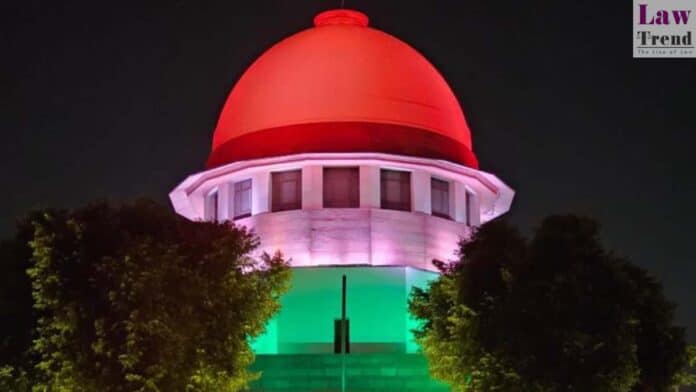A five-judge constitution bench of the Supreme Court is scheduled to commence hearing from October 31 a batch of pleas challenging the validity of the electoral bond scheme for political funding of parties.
The scheme, which was notified by the government on January 2, 2018, was pitched as an alternative to cash donations made to political parties as part of efforts to bring in transparency in political funding.
According to the provisions of the scheme, electoral bonds may be purchased by any citizen of India or entity incorporated or established in India. An individual can buy electoral bonds, either singly or jointly with other individuals.
The bench headed by Chief Justice DY Chandrachud is scheduled to take up the batch of four pleas including those filed by Congress leader Jaya Thakur and the CPI(M).
The other members of the bench are justices Sanjiv Khanna, BR Gavai, JB Pardiwala and Manoj Misra.
On October 16, the top court said, “In view of the importance of the issue raised, and with regard to Article 145(4) (relating to rules for regulating procedure of SC) of the Constitution of India, the matter be placed before a bench of at least five judges…”
On October 10, the top court had taken note of the submissions of lawyer Prashant Bhushan, appearing for NGO Association for Democratic Reforms (ADR), that the matter needed adjudication before the electoral bond scheme opens for the 2024 general elections.
Anonymous funding through electoral bonds encourages corruption and violates the citizens’ right to have a corruption-free nation, Bhushan had said.
“This promotes corruption as the source of funding is anonymous. It is violative of Article 21 and the ‘non-decision’ in the case is compounding the problem,” he had submitted.
One of the PIL petitioners had claimed in March that Rs 12,000 crore so far has been paid to political parties through electoral bonds and two-thirds of the amount has gone to one major political party.
The top court had on March 21 said it will consider whether the pleas can be referred to a constitution bench for an “authoritative pronouncement”.
ADR, which filed the first PIL in 2017 on the issue of alleged corruption and subversion of democracy through illicit and foreign funding of political parties and lack of transparency in the bank accounts of all political parties, had moved an interim application seeking that the sale of electoral bonds not be reopened.
On January 20, 2020, the apex court had refused to grant interim stay on the 2018 Electoral Bonds Scheme and sought responses of the Centre and the Election Commission to an interim application by the NGO seeking a stay on the scheme.
Also Read
Only political parties registered under Section 29A of the Representation of the People Act, 1951 and which secured not less than one per cent of votes polled in the last general election to Lok Sabha or the legislative assembly of the state are eligible to receive electoral bonds.
According to the notification, electoral bonds shall be encashed by an eligible political party only through an account with an authorised bank.
The apex court had in April 2019 also declined to stay the Electoral Bond Scheme and made it clear that it will accord an in-depth hearing on the pleas as the Centre and the EC have raised “weighty issues” having “tremendous bearing on the sanctity of the electoral process in the country”.
The Centre and the EC had earlier taken contrary stands in the court over political funding, with the government wanting to maintain anonymity of the donors and the poll panel batting for revealing their names for the sake of transparency.




